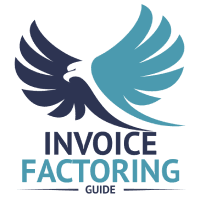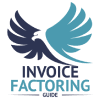
Yogi Berra once said, “If you don’t know where you are going, you’ll end up someplace else.” But, when you’re choosing a factoring company, knowing where you don’t want to go is just as important. Below, we’ll cover some of the most common mistakes people make when selecting a factoring company, why they matter, and how to avoid them so you can find the right partner for your needs and get where you want to go.
1. Overlooking the Importance of Industry Expertise
While generalized factoring might seem like a one-size-fits-all solution, it can leave your business struggling with delays, unexpected fees, or even rejected invoices. The reality is, that different industries have unique invoicing challenges, and if your factoring company doesn’t understand them, your experience and business could suffer.
Why Industry-Specific Factoring Solutions Are Crucial for Businesses
Factoring isn’t just about getting quick cash. It’s about ensuring seamless cash flow without disrupting operations. A factoring company that specializes in your industry understands the typical payment cycles, the risks involved, and even the red flags that might get an invoice denied. Let’s take a look at some examples.
- Freight Factoring: A company working with trucking businesses needs to know about freight broker credit checks, non-recourse factoring, and fuel advances. A general factoring company that doesn’t specialize in freight factoring might reject invoices from certain brokers or struggle with industry-standard paperwork like Bills of Lading (BOLs).
- Staffing Agencies: Payroll cycles in staffing can be unpredictable. A factoring company that specializes in staffing firms understands that weekly payroll funding is a must and offers tailored solutions that align with how staffing agencies operate.
- Construction Factoring: Construction invoices are often progress-based rather than tied to a single product or service. Many general factoring companies won’t touch these invoices because they lack the expertise to verify work completion at different stages like a construction factoring company will.
The Pitfalls in Choosing General Factoring
Many businesses assume that all factoring companies function the same way, but choosing a provider without industry expertise can lead to several issues.
- Longer Approval Times: A factoring company unfamiliar with your industry may not understand standard payment terms, leading to unnecessary delays in funding.
- Higher Rejection Rates: If the factoring company doesn’t accept invoices from your typical clients, you may find yourself unable to factor key transactions.
- Unexpected Fees: General factoring companies may charge additional fees for contract minimums, extra verifications, or services that industry-specific factors include by default.
- Cash Flow Gaps: If the factoring company cannot keep up with the volume or frequency of your invoicing needs, you may experience disruptions in your working capital.
Take the freight industry as an example. If a trucking company signs with a factoring company that doesn’t specialize in freight factoring, they might be shocked to find out that certain brokers aren’t approved, meaning those invoices won’t get funded. That’s a costly mistake.
How to Avoid This Mistake
Before signing with a factoring company, ask open-ended questions to help ensure you find the right fit. A few areas to address are covered below.
- Experience in Your Industry: Ask whether the factoring company works with businesses in your specific sector and understands its unique challenges.
- References from Similar Businesses: Request testimonials or case studies from companies in your industry to verify their expertise.
- Industry-Specific Challenges: Find out what common factoring issues businesses like yours face and how the company addresses them.
- Dedicated Industry Support: Ask if they have a team familiar with your industry’s invoicing, payment terms, and common roadblocks.
If a factoring company can’t confidently answer these questions, keep looking.
2. Failing to Review the Contract Terms Thoroughly
Seven out of ten people say they sign contracts without knowing what’s in them, according to Adobe. That’s a mistake that can cost your business thousands when it comes to factoring contract terms. Many business owners focus on the advance rate and discount fee but overlook the fine print, where hidden fees and terms can create unexpected financial strain.
Hidden Fees and Terms to Watch for in Factoring Agreements
Not all factoring contracts are straightforward, and some include hidden fees that can quickly eat into your cash flow. Here are some common ones to look out for.
- Monthly Minimums: Some factoring companies require you to factor a certain amount each month. If your volume drops below this threshold, you may be charged penalty fees.
- Invoice Verification Fees: Factoring companies often verify invoices to reduce risk, but some charge extra for this, something many businesses don’t anticipate.
- ACH and Wire Transfer Fees: Getting paid quickly is great, but some providers charge steep fees for ACH transfers or wire payments on top of their factoring rates.
- Termination Fees: Breaking a contract early can be expensive, especially if the agreement includes commitment duration and termination clauses designed to lock you in.
Factoring Contract Length and Termination: What to Watch For
A common mistake is assuming you can walk away whenever you want. Many factoring agreements require long-term commitments, and getting out early isn’t always easy or cheap. Here’s what to look for.
- Commitment Duration and Termination Clauses in Factoring: Some contracts lock you in for 12 months or more. Leaving early may trigger heavy termination fees.
- Auto-Renewal Clauses: Many contracts automatically renew unless you provide written notice within a set timeframe. If you miss the window, you could be stuck for another term.
- Notification Requirements: Some agreements require 90 or more days’ notice before canceling. Failing to meet this deadline could mean extra fees or extended contract obligations.
How to Avoid This Mistake
- Read the Contract Carefully: Don’t just skim it. Understand the details before signing.
- Ask for a Breakdown of Fees: Request a full list of hidden factoring fees so there are no surprises.
- Clarify the Contract Length and Exit Terms: Make sure you fully understand the factoring contract length and termination policies before committing.
- Negotiate Where Possible: Many factoring companies will adjust contract terms if you ask, especially if you’re bringing in high invoice volume.
3. Choosing Based Solely on Rates and Fees
It’s tempting to chase the lowest factoring rate, but factoring is not just a numbers game. A low rate doesn’t mean much if your factoring company has slow approvals, unresponsive support, or rigid contract terms. In fact, how low factoring rates can lead to reduced service quality is one of the most overlooked pitfalls in the industry.
The Downside of Low Factoring Rates
If one factoring company is offering rates significantly lower than the competition, there’s usually a catch. Here’s what businesses often encounter.
- Delayed Funding: Factoring companies with razor-thin margins may take longer to process invoices, leading to cash flow bottlenecks.
- Strict Approval Processes: Lower rates often mean stricter client credit requirements, which can result in more rejected invoices.
- Hidden Fees: Some companies offset low rates with hidden charges for things like wire transfers, same-day funding, or contract minimums.
- Minimal Customer Support: If a factoring company is cutting costs, customer service is often the first thing to suffer. Long wait times, generic responses, and limited support hours can leave you stranded when issues arise.
Why Factoring Customer Service and Flexibility Matter Beyond Rates
A great factoring company becomes a financial partner who supports your business. That’s why factoring service and flexibility should be just as important as rates. Here’s what to look for.
- Customer Support Availability: Can you reach them outside of standard business hours if needed? Do they offer a dedicated account manager?
- Funding Speed: Some companies provide same-day funding, while others take days to process invoices.
- Advance Rate Consistency: Does the company have a track record of changing terms unexpectedly? A low rate isn’t helpful if they reduce your advance percentages later.
- Flexible Contract Terms: Are they willing to negotiate contract length, termination terms, or volume requirements?
How to Avoid This Mistake
- Compare More Than Just Rates: Look at overall service, contract terms, and funding speed before choosing a provider.
- Ask About Customer Service Standards: Find out if you’ll have direct access to a support team or if you’ll be stuck with slow response times.
- Watch for Hidden Fees: Request a full breakdown of costs, including funding fees, early termination penalties, and minimum volume charges.
- Prioritize Flexibility: Choose a factoring company that offers scalable solutions tailored to your industry’s needs.
4. Ignoring the Impact of Customer Relations
In all, 52 percent of customers say they’ll switch to a competitor after a single negative experience, Zendesk reports. That means every interaction your clients have, including with your factoring company, can directly affect your business relationships. Yet, many companies overlook how factoring impacts client perception.
Factoring and Client Interactions: What You Need to Know
When you work with a factoring company, they’ll manage collections for you. This means your customers will be dealing with them, too. If the factor’s approach is aggressive, unprofessional, or slow, it reflects poorly on you, even if you’re not the one handling collections. Some potential issues are covered below.
- Unprofessional Communication: Some factoring companies are overly aggressive when reaching out for payment, making clients feel pressured or uncomfortable.
- Slow Payment Processing: If your factor is slow to apply payments, your customers might think you’re the problem, which can lead to strained relationships.
- Poor Dispute Handling: Factoring companies often manage disputes over unpaid invoices. If they don’t handle them fairly, clients may become frustrated with you.
Factoring Impact on Client Relations: Why It Matters

Your factoring company isn’t just a background service. It becomes an extension of your business. The wrong partner can create unnecessary friction, while the right one helps strengthen trust with your customers. Here’s how factoring should support client relationships.
- Professional, Respectful Communication: Your factor should act as a financial partner, not a collections agency.
- Clear Payment Processes: Clients should never be confused about where payments are going or when invoices are marked as paid.
- Flexible Dispute Resolution: A good factor will work with clients to resolve disputes smoothly, preventing unnecessary escalations.
How to Avoid This Mistake
- Ask About Collection Practices: Find out how the factoring company communicates with your clients and whether they take a firm or collaborative approach.
- Look for Transparent Payment Processing: Ensure they have a clear system for applying payments so clients don’t experience delays or confusion.
- Prioritize a Factor with a Strong Reputation: Research reviews and ask other businesses in your industry about their experience.
- Communicate with Clients Early: Let customers know you’re factoring invoices and who they’ll be working with to avoid confusion.
This ensures factoring doesn’t just protect your cash flow. It protects your client relationships, too.
5. Not Assessing the Factoring Company’s Technology and Tools

A major component of your factoring experience is how efficiently you can access and manage your cash flow. If your factoring company still relies on outdated processes, you’re stuck with slow approvals, limited visibility, and unnecessary manual work. That’s why evaluating factoring digital tools should be a top priority before signing a contract.
The Role of Digital Platforms in Improving Factoring Experiences
The best factoring companies offer modern digital platforms that give you real-time visibility into invoices, payments, and account status. If your factoring company doesn’t provide digital access, you may struggle with some of the issues below.
- Slow Funding: Without automated invoice processing, approvals and payments take longer than necessary.
- Limited Account Transparency: If you can’t track invoice status online, you’re left in the dark about when payments are applied.
- More Administrative Work: Manually submitting invoices and checking payment statuses eats into time better spent running your business.
Factoring with Digital Platforms: What to Look For
To ensure a smooth experience, check whether your factoring company leverages the tech below.
- Online Portals: A real-time factoring portal lets you track invoices, approvals, and payments 24/7.
- Automated Invoice Submission: Some factoring companies allow direct integrations with accounting software, eliminating the need for manual uploads.
- Mobile Accessibility: If you’re on the go, a factoring company with a mobile-friendly platform makes it easier to manage funding requests from anywhere.
- Easier Client Payment Tracking: A strong digital platform ensures clients’ payments are processed quickly and accurately, preventing disputes.
How to Avoid This Mistake
- Ask About Technology Before Signing: Find out what digital tools they offer and whether they integrate with your existing systems.
- Check for Real-Time Access: A modern factoring company should provide real-time factoring data so you always know your cash flow status.
- Prioritize Efficiency Over Rates: The cheapest factoring service won’t help if you’re constantly waiting for payments to process.
- Look for Automation Features: The best factors offer automated invoicing, AI-driven approvals, and easy reconciliation tools to reduce manual work.
In today’s world, factoring should be seamless, not a bottleneck. Choosing a provider with strong digital tools ensures your business gets paid faster and runs more efficiently.
Get Matched with the Best Factoring Company for Your Needs
Choosing the right factoring company means you’ll have a reliable financial partner that supports your business’s growth. The right factor will offer transparent terms, strong customer service, industry expertise, and modern digital tools to keep your cash flow moving without unnecessary headaches. If you’re ready to find a factoring partner that checks all the right boxes, request a free factoring quote.
FAQs on Choosing a Factoring Company
Why is industry expertise important when choosing a factoring company?
A factoring company with industry expertise understands your billing cycles, payment terms, and common challenges. For example, freight factoring requires knowledge of broker credit checks, while construction factoring must handle progress payments. Choosing a factor with experience in your field helps prevent delays, contract disputes, and unnecessary funding denials.
What hidden fees should I watch for in a factoring contract?
Common hidden fees include monthly minimums, invoice verification fees, wire transfer charges, and early termination penalties. Some contracts also have auto-renewal clauses that extend commitments unless canceled in advance. Always request a full breakdown of fees to avoid surprises that could reduce your factoring benefits.
How can factoring impact client relationships?
Your factoring company interacts with your customers, which affects client relationships. An aggressive or slow-to-respond factor can damage trust, leading to lost business. The best factoring companies handle collections professionally, process payments efficiently, and communicate clearly, ensuring your clients experience seamless, stress-free transactions.
Why shouldn’t I choose a factoring company based solely on low rates?
Low rates often mean reduced service quality. Some factors cut costs by delaying funding, rejecting more invoices, or providing poor customer support. Factoring should enhance your cash flow, not create new obstacles, so look beyond pricing and consider funding speed, flexibility, and customer service.
What are commitment duration and termination clauses in factoring contracts?
Some factoring contracts lock you in for 12 or more months and charge hefty termination fees if you exit early. Others have auto-renewal clauses requiring advance notice to cancel. Always review commitment duration and termination clauses to ensure you’re not stuck with long-term obligations that don’t align with your business needs.
How do digital platforms improve the factoring experience?
Modern factoring digital tools offer real-time data, automated invoice submissions, and mobile account access. This improves transparency, speeds up funding, and reduces paperwork. Factoring with digital platforms streamlines operations, helping businesses track invoices, payments, and account status without manual intervention.
What should I ask a factoring company before signing a contract?
Ask about fees, contract terms, funding speed, and customer service. Specifically, inquire about hidden fees, industry expertise, termination policies, and digital tools. A strong factoring partner should provide clear, honest answers and align with your business’s invoicing needs.
How does factoring flexibility affect my business’s cash flow?
Flexible factoring terms help businesses scale, while rigid contracts can cause cash flow issues. Look for a factor that offers adjustable funding limits, non-recourse options, and contract flexibility. This ensures you get the funding you need without being locked into costly, restrictive terms.
What role does customer service play in factoring beyond rates and fees?
Strong customer service ensures quick issue resolution, transparent communication, and reliable funding. Poor service can mean slow payments, difficult contract changes, and unresponsive support. A factoring company should act as a financial partner, providing dedicated account managers and proactive assistance to keep your cash flow smooth.

About Invoice Factoring Guide
Related Articles
Get an instant funding estimate
Results are estimates based on the calculated rate and the total invoice amount provided.
Actual rates may vary.
Request a Factoring Rate Quote
PREFER TO TALK? Call us at 1-844-887-0300









